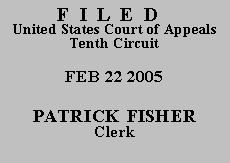

| UNITED STATES OF AMERICA, |
|
| v. | |
| GERMAN ARROYO-BERZOZA, |
Defendant/appellant German Arroyo-Berzoza appeals his sentence following a plea of guilty to one count of unlawful reentry by a previously deported alien, in violation of 8 U.S.C. § 1326. He was sentenced to forty-one months' imprisonment, followed by three years of supervised release. We REMAND for resentencing.
The indictment alleged that Arroyo-Berzoza, after being convicted of an aggravated felony (possession of a controlled substance with intent to distribute), was deported from the United States and was thereafter found in the United States on March 5, 2004, without first gaining permission from the Attorney General. Arroyo-Berzoza entered into a written plea agreement, in which he admitted the conduct charged in the indictment and the government agreed to recommend a 3-level decrease in his offense level for acceptance of responsibility.
Prior to sentencing, Arroyo-Berzoza filed a motion seeking a declaration that the United States Sentencing Commission, Guidelines Manual ("USSG"), were unconstitutional under the Supreme Court's recent decision in Blakely v. Washington, 124 S. Ct. 2531 (2004).(1) More specifically, he argued that Blakely applied to the Guidelines, that the unconstitutional provisions of the Guidelines were not severable, that the Guidelines represented an unconstitutional delegation of Congressional power to the Sentencing Commission to define crimes, and that, by joining the power to define crimes with other powers exercised by the Sentencing Commission, Congress violated the separation of powers doctrine.(2)
The district court held at Arroyo-Berzoza's sentencing hearing that the Guidelines were constitutional and must be applied. The court accordingly sentenced Arroyo-Berzoza to forty-one months' imprisonment, at the low end of the Guideline range, followed by three years of supervised release. He appeals, arguing that the district court's application of an unconstitutional Guidelines system necessitates resentencing.
In United States v. Booker, 125 S. Ct. 738 (2005), the Supreme Court held that Blakely applies to the federal Sentencing Guidelines, such that, to avoid a Sixth Amendment violation, "[a]ny fact (other than a prior conviction) which is necessary to support a sentence exceeding the maximum authorized by the facts established by a plea of guilty or a jury verdict must be admitted by the defendant or proved to a jury beyond a reasonable doubt." Id. at 756. It is clear that no Sixth Amendment violation occurred in this case because all relevant sentencing facts were admitted by Arroyo-Berzoza.
However, as we recently observed in a virtually identical case:
[T]he Supreme Court also imposed a global remedy for the Sixth Amendment difficulties with the Sentencing Guidelines, invalidating their mandatory application and instead requiring district courts to consult them in an advisory fashion. That plainly did not occur in this case. Had it occurred, our task would be to determine whether the sentence is unreasonable considering the factors in 18 U.S.C. § 3553(a).
United States v. Labastida-Segura, No. 04-1311, 2005 WL 273315, at *1 (10th Cir. Feb. 4, 2005) (citing Booker, 125 S. Ct. at 756-57 (excising 18 U.S.C. §§ 3553(b)(1), 3742(e)). We accordingly determined that "[w]e must apply the remedial holding of Booker to [defendant's] direct appeal even though his sentence does not involve a Sixth Amendment violation." Id. at *2.
After noting that sentencing errors can be determined to be harmless in particular circumstances, we concluded that the district court's error of sentencing the defendant in Labastida-Segura while believing the Guidelines were mandatory was not harmless:
Here, where it was already at the bottom of the guidelines range, to say that the district court would have imposed the same sentence given the new legal landscape (even after consulting the Sentencing Guidelines in an advisory capacity) places us in the zone of speculation and conjecture--we simply do not know what the district court would have done after hearing from the parties. Though an appellate court may judge whether a district court exercised its discretion (and whether it abused that discretion), it cannot exercise the district court's discretion.
Id. We discern no material difference between this case and Labastida-Segura.(3) Accordingly, in reliance thereon, we REMAND this case for resentencing.
REMANDED.
ENTERED FOR THE COURT
Stephen H. Anderson
Circuit Judge
*.This order and judgment is not binding precedent, except under the doctrines of law of the case, res judicata, and collateral estoppel. The court generally disfavors the citation of orders and judgments; nevertheless, an order and judgment may be cited under the terms and conditions of 10th Cir. R. 36.3.
1.When Arroyo-Berzoza raised Blakely both to the district court and to this court, the Supreme Court had not yet issued United States v. Booker, 125 S. Ct. 738 (2005). However, raising Blakely is sufficient to raise an argument under Booker. Accordingly, he has preserved an argument under both cases before the district court and before us, and we hereinafter refer to them collectively as Blakely/Booker. We granted both parties permission to file supplemental briefs before us on the effect of Booker, although the government elected not to file one.
2.The unconstitutional delegation and separation of powers arguments are foreclosed by Booker, 125 S. Ct. at 752-55.
3.The government has submitted a letter indicating its agreement that, in light of Labastida-Segura, this case must be remanded.